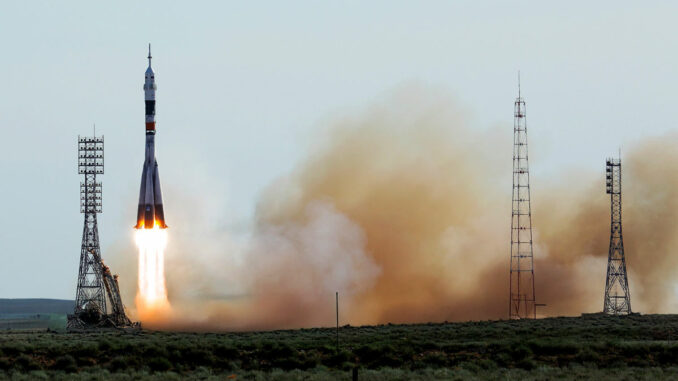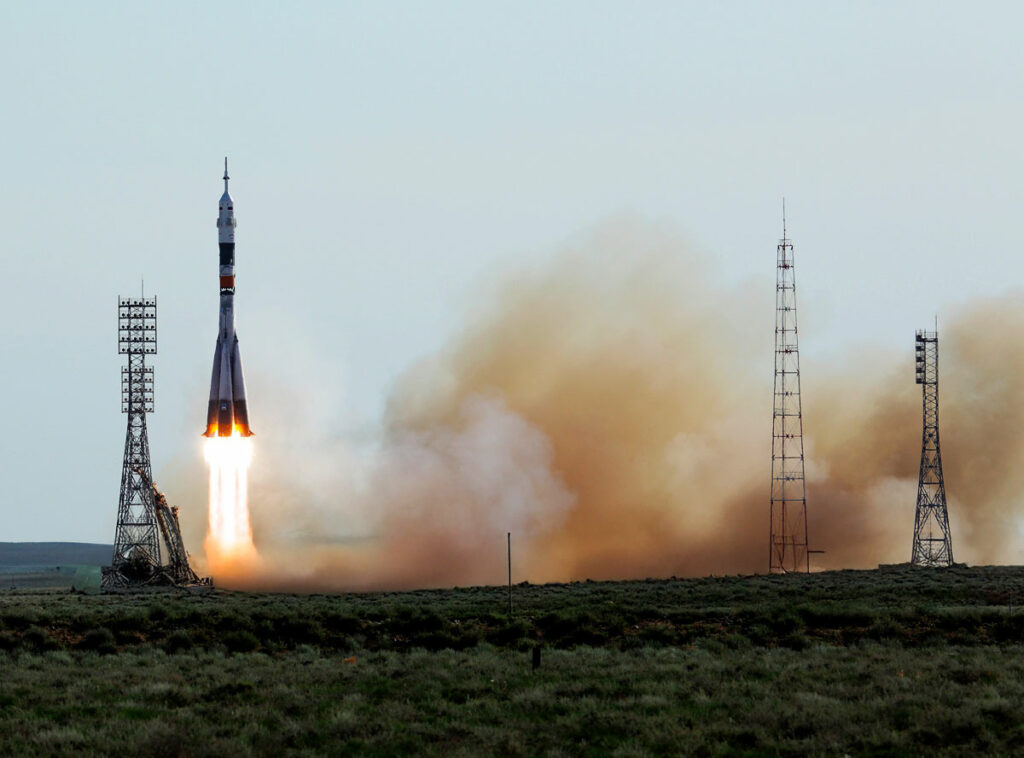
Analysis of the economic and geopolitical stakes of Baikonur, the role of Roscosmos, the challenges of GLONASS and the rise of Beidou.
The Baikonur site in Kazakhstan is of strategic importance to Russia, but international sanctions and economic tensions have affected its operation. Russia’s GLONASS satellites, essential to its global navigation, are underfunded due to the war in Ukraine. Meanwhile, China is strengthening its Beidou network, seeking to compete with GPS and Galileo systems on the global market.
Baikonur: a strategic site in decline
The Baikonur cosmodrome, leased by Russia from Kazakhstan for around 115 million euros a year, is essential for Russian space launches. However, due to overdue payments estimated at 26 million euros, Kazakhstan has seized Roscosmos assets. This situation reflects the growing financial pressure exerted on Russia, amplified by sanctions linked to the invasion of Ukraine.
Russia’s inability to settle its debts is affecting its relations with Kazakhstan, which is now seeking partnerships with China to increase its energy exports. The conflict in Ukraine has not only reduced Russia’s revenues, but also limited its ability to modernize Baikonur’s infrastructure.
GLONASS system degradation
GLONASS, Russia’s global positioning system, requires 24 satellites for worldwide coverage. However, several satellites are nearing the end of their 7-year operational life, with no replacement planned. The cost of a new GLONASS-K satellite, designed to last 10 years, is estimated at 100 million euros per unit. Russia lacks the funds to maintain this constellation, aggravated by the loss of Western suppliers due to sanctions. Although China is supplying electronic components, this alternative remains costly and insufficient.

Growing competition from GPS and Beidou systems
Since the introduction of GPS in 1978, the Galileo, Beidou and GLONASS systems have multiplied, each costing around 10 billion euros to develop. Beidou, which became fully operational in 2020, is seeking to set itself apart with services dedicated to China and its strategic partners, notably as part of the Belt and Road initiative. Unlike Galileo, which is backed by a European coalition, Beidou aims to be commercially viable, although its international adoption remains limited.
The challenges of interference and jamming
Russia has stepped up its efforts to jam and manipulate GPS signals, mainly targeting conflict zones in Ukraine and Syria. These actions are also disrupting civilian systems, notably AIS on ships. INS (Inertial Navigation Systems) are being developed to mitigate these risks, but their cost remains high, sometimes reaching 50,000 euros per unit for advanced military models.
Economic and diplomatic impact for Russia
Russia’s inability to maintain its space infrastructure reflects a decline in its technological competitiveness. Sanctions, coupled with tensions with neighbors such as Kazakhstan, are weakening its position in the once lucrative commercial launch market. In 2021, Roscosmos will generate annual revenues of around 1 billion euros, a figure that has been in freefall since the start of the war.
Opportunities for China and Europe
China, with Beidou, is investing in emerging markets and civilian sectors, seeking to compete with GPS and Galileo. Europe, meanwhile, is counting on Galileo to reduce its dependence on American GPS, while offering advantages such as greater accuracy in urban areas.
Future prospects
To restore its influence, Russia will not only have to resolve its tensions with Kazakhstan, but also invest heavily in modernizing GLONASS and its space infrastructure. However, these efforts remain conditional on a favorable resolution of the Ukrainian conflict and the lifting of sanctions. Meanwhile, China and Europe could capitalize on Russia’s decline to strengthen their position in the global satellite navigation market.
War Wings Daily is an independant magazine.